LAUYUFAT.
Or "Liuyufa" Teashop, if you're into Mandarin. To be fair, this is a Hong Kong shop (of some reknown) and so it would be best to stick with the Lauyufat.
Apache and I share a love of "old fashioned" pu'ercha, referring to that humble genre of cakes that has typically formed the majority of what we consider to be "aged". The venerable teagangster himself introduced this cake to me after a previous session, and we subsequently made a joint purchase from The Fat. It took ages to arrive, but all good things come to those who wait. In pu'ercha, you need patience. International shipping ain't no problem.
The Fat celebrated its fiftieth anniversary with this cake, which is a blend of Bulangshan and Badashan leaves, and which sounds rather good to my ears.
I drank some of this cake after encountering a lesser 2012 cake on the same day and was subsequently impressed by this cake's thickness and fullness, both in aroma and in the cup. The Fat has been in the business of selling pu'ercha for a long time and, while that doesn't necessarily equate to making great cakes, this one certainly is decent.
Apache and I have a hedging strategy, you see. It basically comes down to the fact that the great cakes of ages past were of a certain genre, and that the modern tendency towards hyper-expensive, single-mountain cakes may be diverging from that genre. This may or may not be a good thing, but it is wise to drink widely, as is true for most things in this little existence.
I have plenty of overpriced young tea in my collection, as I'm sure many of us may, but there is life outside the genre of single-mountain leaves, hand-picked by trained eunuchs, leaves subsequently dried within the warm confines of a buxom wench's ample bosom. Despite what the commercial web-sites will tell you.
Like many of us, I'm a big fan of ample bosom - the modern genre of tea is a pleasure to drink at this young stage, after all. The question is more one of extrapolation into future decades, and it is in this aspect that the uncertainty begins to creep in.
The best we can do is to drink widely, acquire data-points, and watch the evolution of our own experiments. I've been buying tea in quantity for no more than seven years, which is a very short interval given the lengths of time that the Great Cakes have been around. The best that we can do is to determine which cakes in our collections are coming on well. We have data allowing limited comparisons:
(i) For those cakes bought when new, how are they now that they are, for example, six years old?
(ii) For those cakes bought at, let's say, six years of age, how are they now that they are twelve?
And so on.
Usefully, we may compare those cakes that have gone from 0 years to 6 six years with those that have gone from 6 years to 12 years. We may have some 12-year cakes which are doing very well, and of which we may recall their state at 6 years of age. Do we have any younger, modern cakes that have grown into that state, now that they themselves have attained an age of 6 years?
For my collection, the best agers have been humble: the "old fashioned" recipes have made great strides in six years towards the state in which my most decent 12-year cakes started out. The "hand-made" cakes have a greater failure rate.
It is, naturally, an inexact science, with the definition of "young cakes" changing, as more and more merchants pile onto the "visit Yunnan, buy maocha, make cakes" bandwagon. Presumably, over this time, such merchants have been improving in their skills, their ability to pick and process good leaves, etc. It could be that the merchant-made 2012 cakes are all amazing in 50 years, compared with the 2008 cakes.
Therefore, Apache's and my strategy is really one of hedging: we are heavily invested in modern single-mountain cakes, but also heavily invested in "chenxiang" [old fragrance] cakes, just to be safe. I find myself leaning ever more towards the latter category, it must be said, and I am slowing up considerably in my acquisition of merchant-made, ample-bosom cakes. The last that I bought in any quantity from Western merchants was in 2010, I think, and I have been drinking samples since - with mixed feelings for the success of the merchants' more recent products (across a range of some half-dozen merchants). This is just my own folly, but I share it for the purposes of comparison.
--
Hmm. It seems that I have whizzed through this article without actually referring to the nominal subject of the article, the 50-year cake by The Fat. That's fine.
The cake by The Fat, like all good "old school" recipes, offers little in the way of surprises, but much in the way of satisfaction. It tastes like every old, good cake that you ever came across - just young.
And that's exactly what I'm after at this stage.
Addendum
January, 2015
Four years later, this is a good tea: sweet, husky, fruity - almost part of the Menghai oeuvre - with plenty of strength. It endures many infusions without degradation, and seems to be aging in a stable manner.

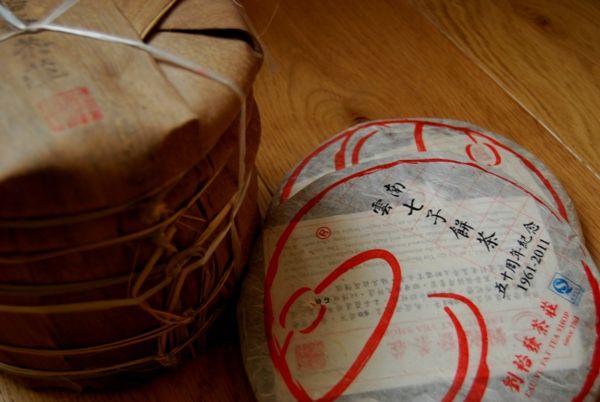
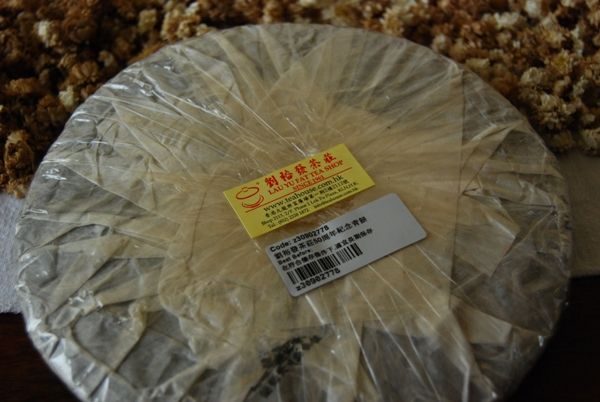
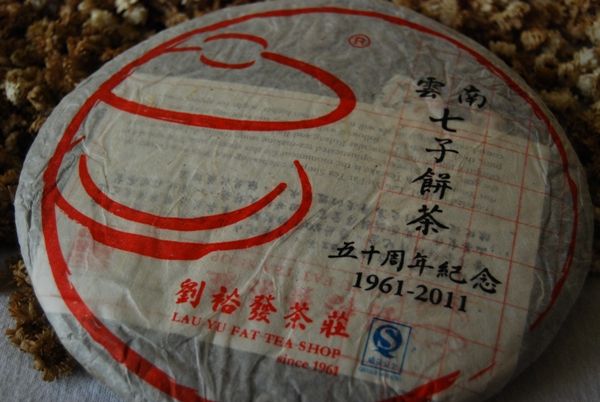
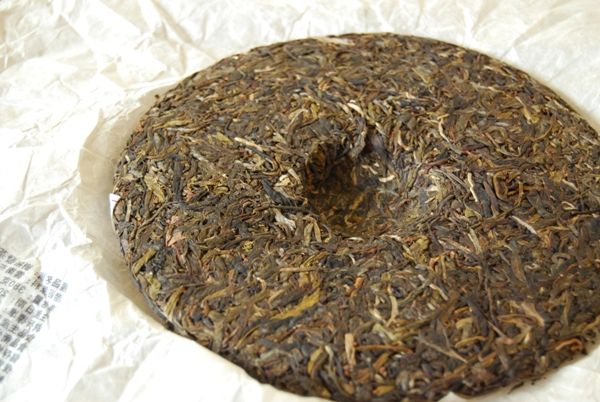
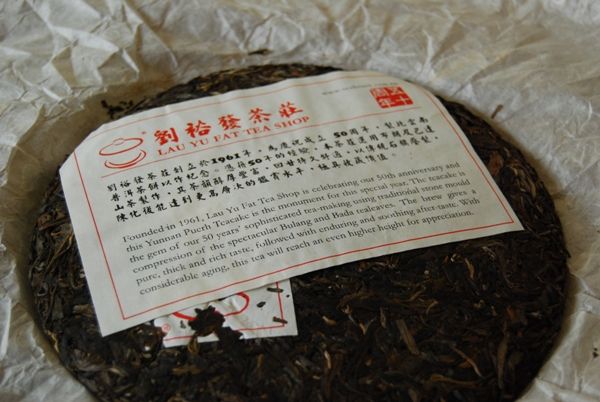
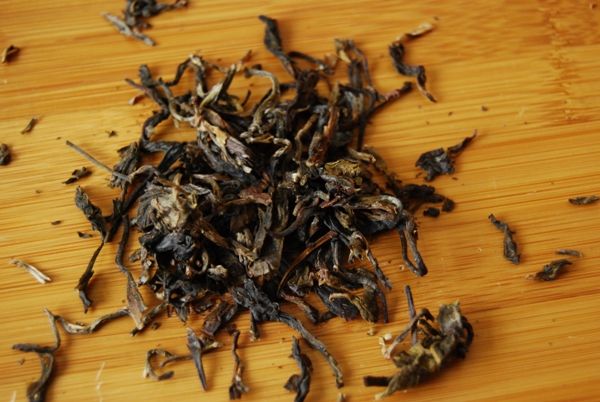
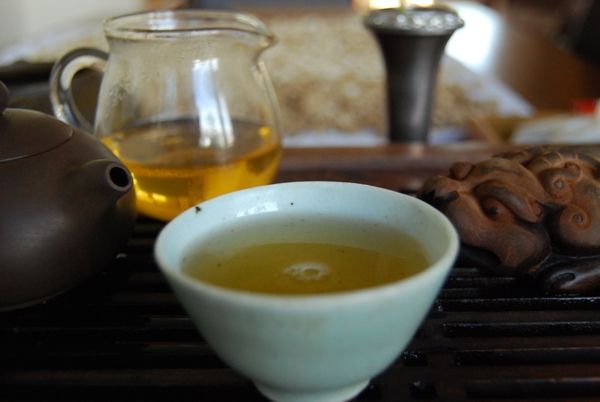
22 comments:
Ah, good that you're alive. After the four days without a post, I was afraid you came to the dark side and became Darth Hobbes.
Although I'm aging my stuff for even less years (5), I observed the similar trend - modern fancy stuff goes wrong more often than the "classical" stuff. I guess that the big producers&blenders know very well what they're doing after all. The issue with modern fancy stuff is, I believe, that some taste components tend to age away...which, if it is the dominant feature of the single-area cake, leads to certain problems :)
Btw. I'd say that it might not be necessarily the death of a cake if it is not that good after 3-5 years of aging. I think that after losing its youth, puerh often enters a "transitional" period when it is not that great, but it may become very good after that.
All the best!
Jakub
Yay!! I'm so glad someone else noticed! Great post!
Su
I've been trying to contact them the past several days to purchase this and a few other of their offerings. I wish they'd incorporate a shopping cart. Maybe they aren't that serious about selling online and prefe in-store sales.
Haven´t broken into the world of Puerh yet, and certainly not at your level of expertise but I always immensely enjoy your posts!
Hey Hobbes,
As a budding pu head, I first of all love your blog.
And I was kinda curious if i could use one of your reviews for a rhetoric class of mine (full credit will of course be given to you).
Thanks
~Noam
Hobbseian rhetoric? Without a final arbitor of taste, all is confusion in the puerh world?
I'm amused by the thought that we know anything about how newer styles of puerh ages. They haven't been around long enough. What hasn't changed is that it matters that people know what they are doing. A well done single estate cake ages just fine. A poorly done blended cake won't age favorably at all.
Moreover, hedging strategies are a bad idea unless you're really good and able/willing to work everything out. I tried hedging strategies, and by and large, that prevented me from buying more tea that I honestly liked better(and which have been static or aging satisfactorily). At the end of the day, hedging wounds up meaning that one should buy cakes of tea that is less familiar to them. Given all of the asymmetric information issues involving puerh, I don't think that's a good idea.
The basic concept is still the same, for any kind of puerh tea. Be familiar with what each general segment can offer you, what the issues are, and measure each tea to its accurate measuring stick.
Don't go by heuristics. This whole market is fundamentally about getting people to pay for a spread, because profits are very hard to come by in China, and in most of East Asia (if you're not connected). If you buy Fujin, you buy chopped high quality plantation/gushu blends for several times what the leaves are really worth. If you buy uber cheap shu, you could make yourself nauseated or worse. There's no magic recipe because there is a great deal of attention to "customer behavior".
There's no help for it but to try lots of puerh, figure out what you really want to pay for, and become acclimated to the market structure for positive outcomes, whether that's drinking now or later.
Hobbes,
I think your overall idea is right; classic blends are likely to age well, as they always have. They are also a safer bet (in most cases) than single area cakes. However, a lot of what was previously classic has deteriorated in quality. I would be thrilled to be given a few tongs of 90's 7542. But, if I was gifted '12 dayi 7542? "Thrilled" would no longer be the right word. As Shah mentioned, Fujin is another easy target. Their newer "classic" style blends (Bulang abound) can carry a price tag as hefty as some artisan cakes.
Sounds like the Fat did a good job of providing a good cake at a good cost, which is a solid accomplishment. The world needs more of that.
Dear Hobbes (and others)
As a cake becomes really old and aged the cha qi is often more important than the actual taste (at least for me). Does anybody have an idea how that calming and penetrating energy of some of the young "fancy" cakes transforms? If it gains some extra strength and depth (in a positive way)with years than it could turn into something really special and it may worth the money.
all the best
Norbert
Insightful in an uncertain and adventurous way. Thank you, Hobbes.
Dear The Jakub,
Things are getting tense here in Hobbesville! My dear wife is about five days away from the due date for our second baby (a son), and so we're running around trying to get everything in place. I'm impressed that you noticed a temporary absence! I was writing a paper non-stop. "Extreme Function Theory", which has overlap with your own interests!
Blending is an old-school art that I greatly respect. I don't think it's as simple as mixing two types of maocha, given the lengths to which the traditional experts in the field appear to go - and, judging by the stability and excellent aging profile of their results, is worth the investment of time. It explains, for example, why so many labels have been started by folk who were previously master blenders for Menghai, et al.
I wouldn't proclaim the "death of a cake" - even a loosely-stored maocha can have some charms - but there are definitely degrees of success for cakes. Not all cakes age equally, is my meaning, of course. :)
Toodlepip,
Hobbes
Dear Squaretooth,
Your best bet might be just to telephone them. Given that they're in Hong Kong, they are probably happy to take orders in English (unless you can speak Cantonese!). They have a tiny Taobao profile because of this precise reason, according to Apache - they really prefer doing things the ol' fashioned way. It seems to work for them, because they're still going strong.
Toodlepip,
Hobbes
Dear Noam,
You're very welcome to use my articles for your course - I'm assuming that they're being presented under the heading "how not to do it". :)
All of those double-negatives! And beginning sentences with a conjunction! I can see my old English teacher wincing.
Toodlepip,
Hobbes
Dear shah,
On the contrary, hedging for me means precisely the opposite to that which you describe: hedging merely means indulging my broad tastes in pu'ercha, which are eclectic. I thoroughly enjoy both modern stratospherically-priced "ample bosom" cakes, and robust, down-to-Earth blends. (I thought that I'd covered that in the article!) Hedging, to me, merely recounts the old wisdom of not putting all of one's eggs in one basket. :)
I agree with your last phrase: drink widely, and work it all out for yourself. There can be no arbitor of your own tastes, other than yourself, of course.
Toodlepip,
Hobbes
Dear Twodog,
Something has definitely changed with Dayi, but it must be said in fairness that even my modern Dayi blends are darkening, deepening, and becoming really rather enjoyable. Will they become as good as old-recipe 7542? Perhaps, perhaps not. Are they good on their own terms? They are indeed.
A good cake at a good price is indeed what it's all about. I appreciate your taste for a good bargain, as in the case of those sub-$20 cakes to which you introduced me, all of which had their charms.
Toodlepip,
Hobbes
Dear Norbert,
Chaqi is a nefarious concept. That said, Apache and I tried to teas back-to-back last week-end: one was a 2001 Menghai 7432 (not 7532!), and the other was a 30-year-old Tongxinghao. The former was intense: after one tiny cup, I felt nervously exciting, edgy, and brittle-of-mind. The latter was completely the opposite: after a single cup, I was Bob Marley.
Pro-tip: if you say "beer-can" in an English accent, you identically say "bacon" in a Jamaican accent. Try this on your elderly English relatives.
Toodlepip,
Hobbes
Dear Phyll,
I'm very glad to see a post from you, old chum! I trust that life is treating you and your family well - it goes without saying that we all miss your presence out here, in the dim and dusty corridors of the Interwebs.
With very best wishes,
Hobbes
Thanks Hobbes,
I finally was contacted. I think my primary email address through my ISP wasn't getting through on their end. I sent another email using hotmail and they replied quickly. Sadly they are out of all of Clouds tea. I was hoping to score some of the special edition. - aka Squaretooth -
Dear Lord Hobbes, your logic is impeccable but for one oversight; very few of us will be around in 50 years to discover the answer to the questions your methodology hopes to resolve.
Dear Squaretooth,
I'm sorry to read about the unavailability of the Clouds cake; you might like this Lauyufat cake as an alternative, or perhaps the 2011 Jin Dai - more on which later.
Toodlepip,
Hobbes
Dear Ren,
Isn't that what our children are for? :)
Toodlepip,
Hobbes
I'm still not giving up on finding the Cloud's special, even if it means taking a chance on taobao. I've had mixed luck there. I am expecting a 20 gram sample of the 2011 Jin Dayi. I wanted to hold off on any larger of a purchase as a well respected friend wasn't impressed with it. Of course, we all have different tastes. Lately I've been trolling a lot of puerh sites and going through their back catalogues, looking for well priced and nearly forgotten tidbits. I was lucky to have picked up a couple of 2004 Six Famous Tea Mountain Gedeng cakes and noticed quite a change in the year that I've had them. Really an outstanding and long lasting cake. My tongue still tingles. :-) Wish I'd have gotten more while it was available.
Dear Squaretooth,
I wish you every success with TB - I'm sure it'll be fine, as you're taking a very sensible approach by pre-sampling.
The 2004 6FTM Gedeng is really rather chunky; I like it very much, and am something of a fan of their old-fashioned cakes, rough-and-ready though they may be. Perhaps that's all part of the charm. They're a complete bargain, and age very well, judging from those examples in my collection.
Toodlepip,
Hobbes
Post a Comment